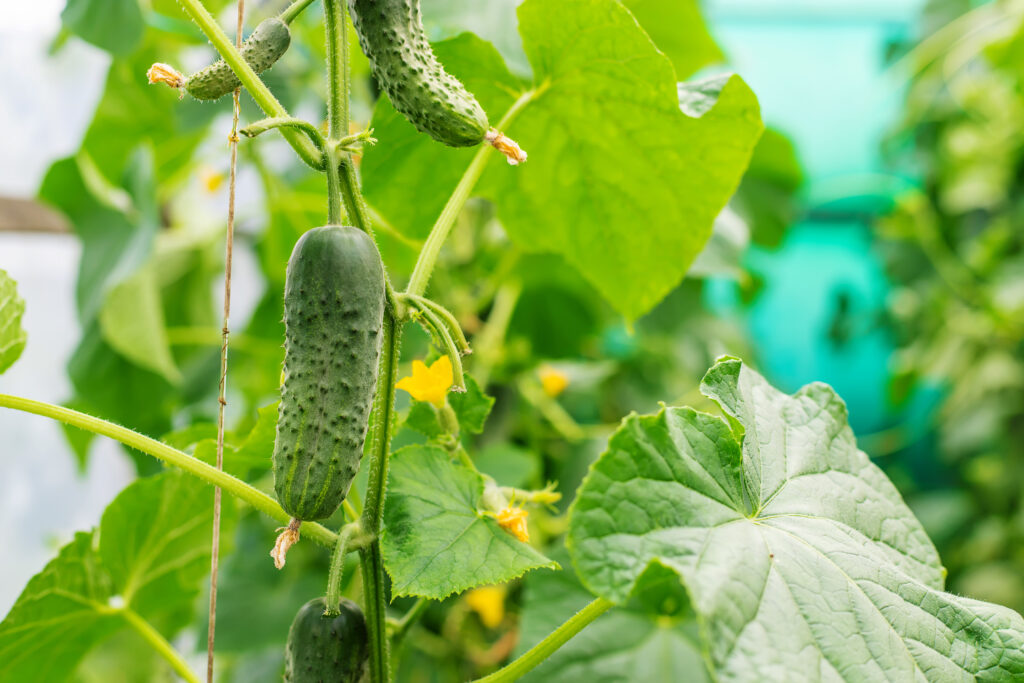Summary of Evaluation of a Legume-Derived Protein Hydrolysate to Mitigate Iron Deficiency in Plants
Iron Deficiency Reduced by Biostimulant in Tomato and Cucumber
Biostimulants to Combat Iron Deficiency in Crops
Iron Deficiency reduced by biostimulant represents a sustainable approach to enhance crop growth under challenging nutrient conditions. Biostimulants, including protein hydrolysates derived from legume seeds through enzymatic hydrolysis, are increasingly used in modern agriculture to improve plant performance while reducing the reliance on chemical fertilizers. This study investigated the effect of such a biostimulant on tomato (Solanum lycopersicum L.—cv. AKRAI F1) and cucumber (Cucumis sativus L.—cv. EKRON F1) plants grown hydroponically under both sufficient and limited iron supply.
Foliar applications of the biostimulant did not significantly affect plant growth when nutrients were fully supplied. However, in Fe-deficient conditions, the biostimulant proved highly effective in promoting plant development. Treated plants showed increased shoot and root fresh weight, higher leaf relative chlorophyll content, and improved accumulation of both macro- and microelements in shoots and roots. Importantly, the activity of root Fe3+-chelate reductase—a key enzyme for iron uptake—was significantly enhanced in treated plants. These results highlight that iron deficiency reduced by biostimulant can effectively stimulate plant nutrient acquisition and growth under stress conditions.
Environmental and Economic Benefits of Biostimulants
Using biostimulants to mitigate Fe deficiency not only improves plant growth but also reduces the need for additional iron fertilizers. This leads to environmental benefits by lowering chemical input and minimizing potential soil and water contamination. Additionally, improved crop performance under nutrient-limited conditions supports higher productivity, offering economic advantages to growers. Overall, iron deficiency reduced by biostimulant is a promising tool for sustainable agriculture, providing a practical solution to maintain crop yield and quality in a growing global population while adhering to environmentally responsible practices.
Publication: Agronomy









